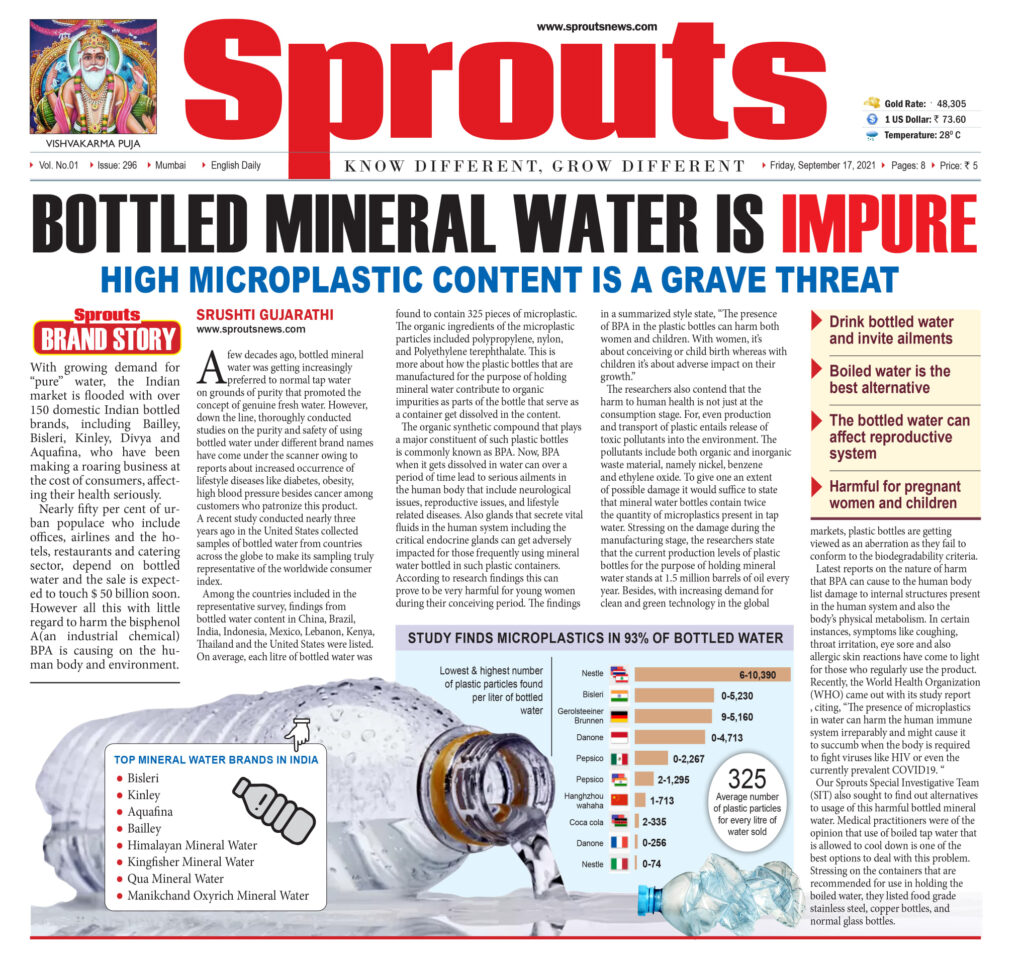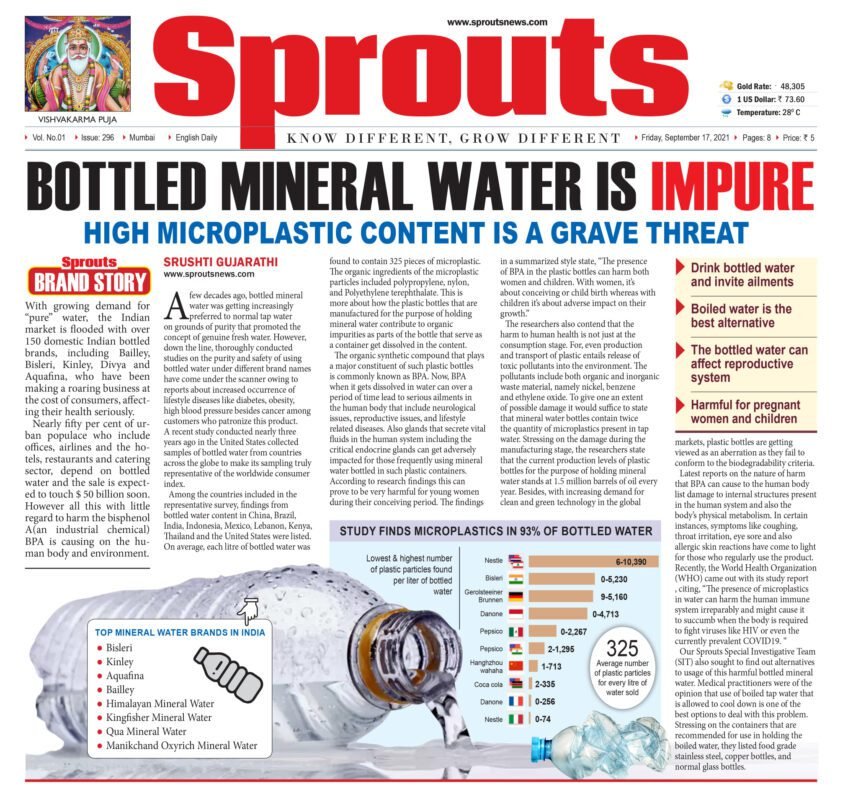
With growing demand for “pure” water, the Indian market is flooded with over 150 domestic Indian bottled brands, including Bailley, Bisleri, Kinley, Divya and Aquafina, who have been making a roaring business at the cost of consumers, affecting their health seriously.
Nearly fifty per cent of urban populace who include offices, airlines and the hotels, restaurants and catering sector, depend on bottled water and the sale is expected to touch $ 50 billion soon. However all this with little regard to harm the bisphenol A(an industrial chemical) BPA is causing on the human body and environment.
A few decades ago, bottled mineral water was getting increasingly preferred to normal tap water on grounds of purity that promoted the concept of genuine fresh water. However, down the line, thoroughly conducted studies on the purity and safety of using bottled water under different brand names have come under the scanner owing to reports about increased occurrence of lifestyle diseases like diabetes, obesity, high blood pressure besides cancer among customers who patronize this product. A recent study conducted nearly three years ago in the United States collected samples of bottled water from countries across the globe to make its sampling truly representative of the worldwide consumer index.
Among the countries included in the representative survey, findings from bottled water content in China, Brazil, India, Indonesia, Mexico, Lebanon, Kenya, Thailand and the United States were listed. On average, each litre of bottled water was found to contain 325 pieces of microplastic. The organic ingredients of the microplastic particles included polypropylene, nylon, and Polyethylene terephthalate. This is more about how the plastic bottles that are manufactured for the purpose of holding mineral water contribute to organic impurities as parts of the bottle that serve as a container get dissolved in the content.
• HIGH MICROPLASTIC CONTENT IS A GRAVE THREAT
The organic synthetic compound that plays a major constituent of such plastic bottles is commonly known as BPA. Now, BPA when it gets dissolved in water can over a period of time lead to serious ailments in the human body that include neurological issues, reproductive issues, and lifestyle related diseases. Also glands that secrete vital fluids in the human system including the critical endocrine glands can get adversely impacted for those frequently using mineral water bottled in such plastic containers. According to research findings this can prove to be very harmful for young women during their conceiving period. The findings in a summarized style state, “The presence of BPA in the plastic bottles can harm both women and children. With women, it’s about conceiving or child birth whereas with children it’s about adverse impact on their growth.”
The researchers also contend that the harm to human health is not just at the consumption stage. For, even production and transport of plastic entails release of toxic pollutants into the environment. The pollutants include both organic and inorganic waste material, namely nickel, benzene and ethylene oxide. To give one an extent of possible damage it would suffice to state that mineral water bottles contain twice the quantity of microplastics present in tap water. Stressing on the damage during the manufacturing stage, the researchers state that the current production levels of plastic bottles for the purpose of holding mineral water stands at 1.5 million barrels of oil every year. Besides, with increasing demand for clean and green technology in the global markets, plastic bottles are getting viewed as an aberration as they fail to conform to the biodegradability criteria.
Latest reports on the nature of harm that BPA can cause to the human body list damage to internal structures present in the human system and also the body’s physical metabolism. In certain instances, symptoms like coughing, throat irritation, eye sore and also allergic skin reactions have come to light for those who regularly use the product. Recently, the World Health Organization (WHO) came out with its study report , citing, “The presence of microplastics in water can harm the human immune system irreparably and might cause it to succumb when the body is required to fight viruses like HIV or even the currently prevalent COVID19. “
Our Sprouts Special Investigative Team (SIT) also sought to find out alternatives to usage of this harmful bottled mineral water. Medical practitioners were of the opinion that use of boiled tap water that is allowed to cool down is one of the best options to deal with this problem. Stressing on the containers that are recommended for use in holding the boiled water, they listed food grade stainless steel, copper bottles, and normal glass bottles.
[inhype_block type=”postsgrid7″ block_title=”Also Read” block_posts_type=”latest” block_categories=”” block_posts_limit=”4″ block_posts_loadmore=”no” block_posts_offset=”0″]

















